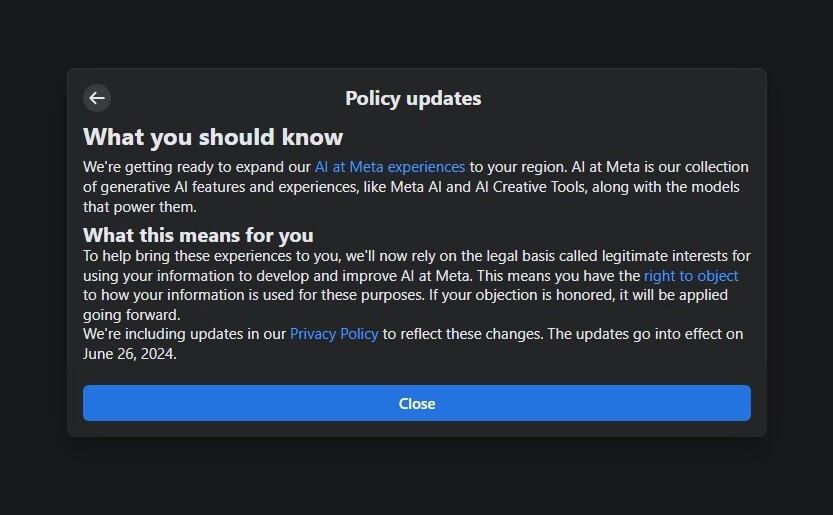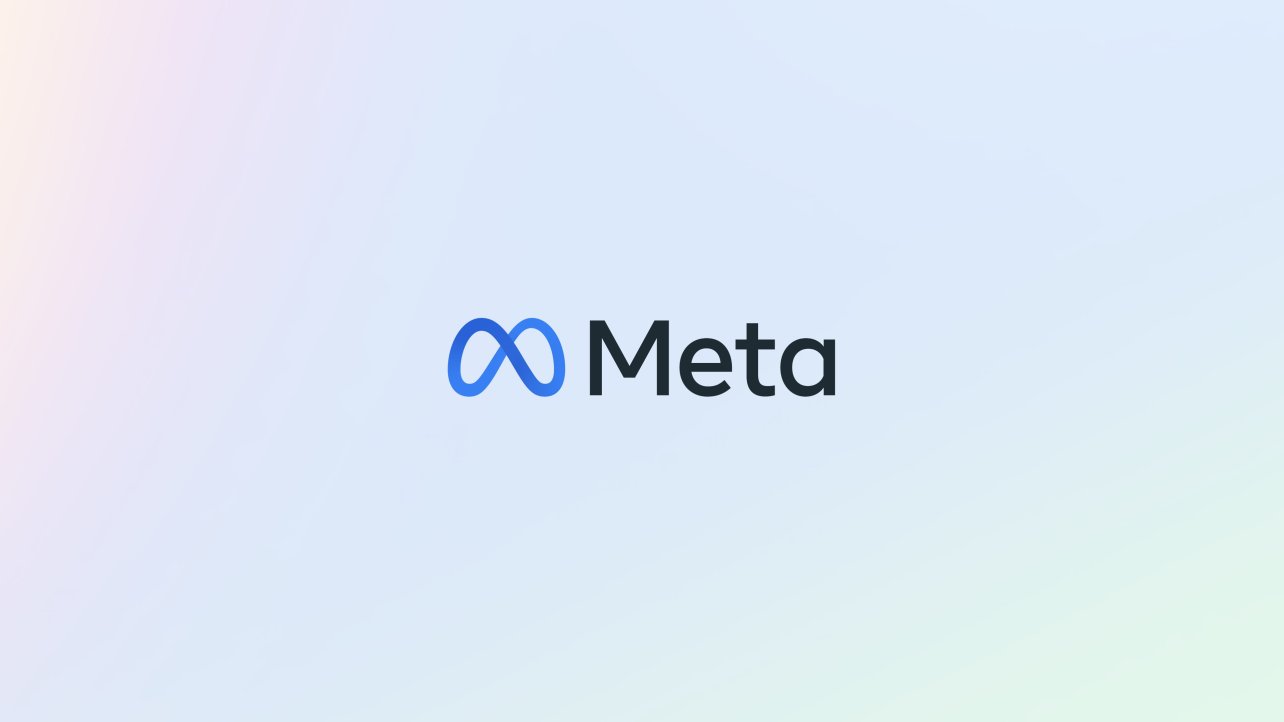Meta has announced that it will begin training its own AI using data from European users. The company claims that it has a legitimate interest in this practice. Users can object to the use of their data; however, there have been complaints regarding the procedure for submitting these objections.
To object, users must fill out a form, detailing how the data processing affects them. Meta has stated that it will evaluate all opt-out requests and will only cease using the data if the request is approved. These changes to data processing and the associated privacy policy will come into effect on June 26.
Previously, Meta faced criticism for asserting a legitimate interest in processing user data for targeted advertisements, a claim that was rejected by the European Court.
No email, only in-app notification.
The notification has been sent to European users through Facebook’s & Instagram’s in-app notification system, “We’re planning new AI features for you. Learn how we use your information.”, clicking on the notification leads to this page:

From this page, you can see the newly updated Privacy Policy.
A quick scan of the page for common keywords gives us an idea of the type of content that Meta will use for its AI training purposes. Meta says, “The actual information we use depends on your factual circumstances” and goes on to add that “it could include any of the following”:
- Content that you create, like posts, comments, or audio.
- Messages you send or receive from businesses, professional accounts, or Meta (such as to Meta’s artificial intelligence technology), and messages in features designed to be public, including message content and metadata, subject to applicable law.
- Apps and features you use, and what actions you take in them
Meta justifies this move on the grounds of “legitimate interest,” a concept that has been controversial and often challenged within the context of GDPR compliance. Under the GDPR, legitimate interest as a basis for data processing requires a genuine interest and a necessity for the processing that cannot be reasonably achieved by other means, as well as a balance against the fundamental rights and freedoms of data subjects.
We can also argue that the need for an opt-out rather than an opt-in system burdens users, who must navigate potentially cumbersome procedures to protect their data. This concern is compounded by reports from users facing difficulties completing the opt-out process, such as not receiving confirmation codes, which traps them in a system they wish to escape.
Meta does say, “We do not use the content of your private messages with friends and family to train our AIs.” This is great news for anyone who has many contacts on Messenger/Instagram/WhatsApp, but it does mean that if you oppose having your public data (posts, audio, comments) used for AI training purposes, you must either get the objection approved or delete all the data associated with your account.
Instagram’s “right to object” form is separate
A few hours after this story was published, a reader reached out to Stack Diary to let us know that Instagram users also received the in-app notification for Privacy Policy changes and that they have an entirely separate “Object to Your Information Being Used for AI at Meta” form to fill out.
The form for Instagram users can be found here, and the updated Privacy Policy has been added here. The instructions to find the right to object form from the Instagram mobile application are as follows:
- Go to your profile
- Tap on the hamburger menu (three lines)
- Tap on “Settings and Privacy”
- Scroll to the bottom and tap on “About”
- Next, you need to select “Privacy Policy”
- Then, find the “right to object” hyperlink
- Fill out the form and click Submit
As for what to put inside the objection form, you can say something like:
As an EU citizen, I assert my rights under GDPR to keep my data private. I do not consent to the use of my data for AI training, improvement, or personalized services.
and in the additional information box, you can put something like:
If my objection is not honored, I will cease using all Meta products indefinitely.
There should be absolutely no reason for Meta not to honor your request.
For reference, here are the updated policies and the objection forms for both Facebook and Instagram:
Update 5/25/24 09:50 GMT: The article was updated to include that Instagram users received the same in-app notification and that they have to use a separate “right to object” form.
